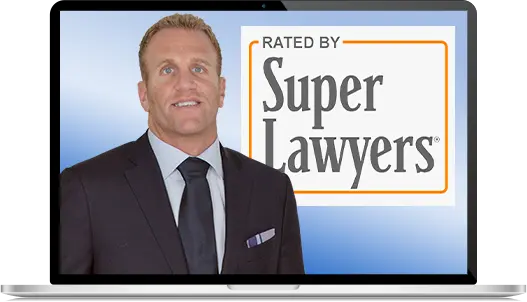How many times as Plaintiff attorneys do you get a blanket objection or Motion In Limine from a defense lawyer when you or your client mentions the word “insurance.” This one word sends opposing counsel into a frenzy and often causes debates as to the admissibility of testimony concerning insurance of any kind in a motor vehicle collision trial. However, whether the Plaintiff is referring to potential liability insurance to compensate him or her for his or her injuries, or instead first party or health insurance, is critical regarding its admissibility at trial.
At our firm, we handle limited tort cases and mentioning insurance is critical in permitting our client’s to recover for unpaid medical bills regardless of their limited tort status
The typical fact pattern is as follows: After Plaintiff began treatment for her injuries from a motor vehicle collision, she was forced to stop due to either the exhaustion of her first party benefits or her lack of health insurance and the inability to afford adequate medical care. Her injuries have not yet been resolved. At a deposition or trial, the savvy defense lawyer asks on cross examination why the Plaintiff stopped treating after six months if she was as hurt as she claims. Her response is the above—that she didn’t have a way to pay for the continued care due to lack of insurance. The defense lawyer objects and/or moves to strike, asserting incorrectly that statements about insurance are inadmissible at trial pursuant to the Pennsylvania Rules of Evidence.
Contrary to the defense lawyer’s position, Pennsylvania law does not preclude Plaintiff’s testimony or evidence from trial. The plain language of the rule states:
For a free legal consultation,
call 877-467-4666
Evidence that a person was or was not insured against liability is not admissible upon the issue whether the person acted negligently or otherwise wrongfully. This rule does not require the exclusion of evidence of insurance against liability when offered for another purpose, such as proof of agency, ownership, or control, or bias or prejudice of a witness. P.a.R.E. 411
Additionally, the Note to P.a.R.E 411 states that “This rule does not require the exclusion of evidence of insurance against liability when offered for another purpose.” In turn, Courts have found evidence of insurance permissible when it is relevant to the issue in a case. Beechwoods Flying Service v. Al Hamilton Contracting Corp., 504 Pa. 618, 476 A.2d 350 (1984).
Here, the evidence that Plaintiff does not have insurance is offered to show why she did not seek additional medical treatment. It is anticipated that the defense will argue that the Plaintiff did not seek immediate or sufficient medical care to mitigate her damages. The fact that the Plaintiff was not protected by a policy of health insurance is a reasonable and necessary explanation to this challenge. Further, and in accordance with Rule 411, this evidence is not offered to show the negligence of a party, nor is it offered to prove liability in this action.
Further, Pa. Courts have required Defendants to show that admitting evidence regarding
insurance would be prejudicial to their case. See, Carpinet v. Mitchell, 853 A.2d 366 (Pa.Super 2004) (“The law requires more than a mere mention of the word ‘insurance’ to establish prejudicial warranting the extreme remedy of a mistrial.”); and Fidelity Nat. Title Ins. Co. of New York v. Suburban West Abstractors, 852 A.2d 318 (Pa.Super 2004) (“The mere mention of the word ‘insurance’ does not necessitate a new trial unless the aggrieved party can demonstrate prejudice.”)
Additionally, unless the Defendant can show that the mention of insurance can influence a jury to sway damages in the Plaintiff’s favor, the court should admit the evidence. Allied Elec. Supplly Co. v. Roberts, 797 A.2d 362, 366. (Pa.Super 2002). The court found that the reference to insurance was inadvertent and not intentionally elicited by the Plaintiff or counsel and therefore was not prejudicial to the defense. The court further clarified their position on admitting insurance in these situations in Paxton Nat. Ins. Co. V. Brickajlik, 513 Pa. 627, 631 (Pa. 1987). There, the court said when the fact-finders are tempted to render decisions based upon the extraneous information the evidence
regarding insurance should be barred. Id. However, without some indication that the movant would be prejudiced, the court may admit the evidence if it is offered for some other purpose, as outlined in the language of the statute.
Accordingly Plaintiff practitioners should cite Pa.R.E. 411 as permitting evidence of lack of insurance when it is offered for other reasons instead of proving negligence or wrongdoing. In the fact pattern set forth above, the insurance was offered to show why the Plaintiff did not pursue medical treatment despite the severity of her injuries. It does not intend to sway a jury’s damage award, nor is it prejudicial to the defense. Rather, it is an explanation for the anticipated argument by the defense that the Plaintiff did not seek immediate or sufficient medical care. Therefore it is admissible.
Further, in limited tort cases, if you cannot prove a serious impairment, then proving excess unpaid medical bills and mentioning lack of insurance will help get you and your client a recovery in the limited tort matter.
Need A Full-Service Personal Injury Law Firm?
GoSimon.
